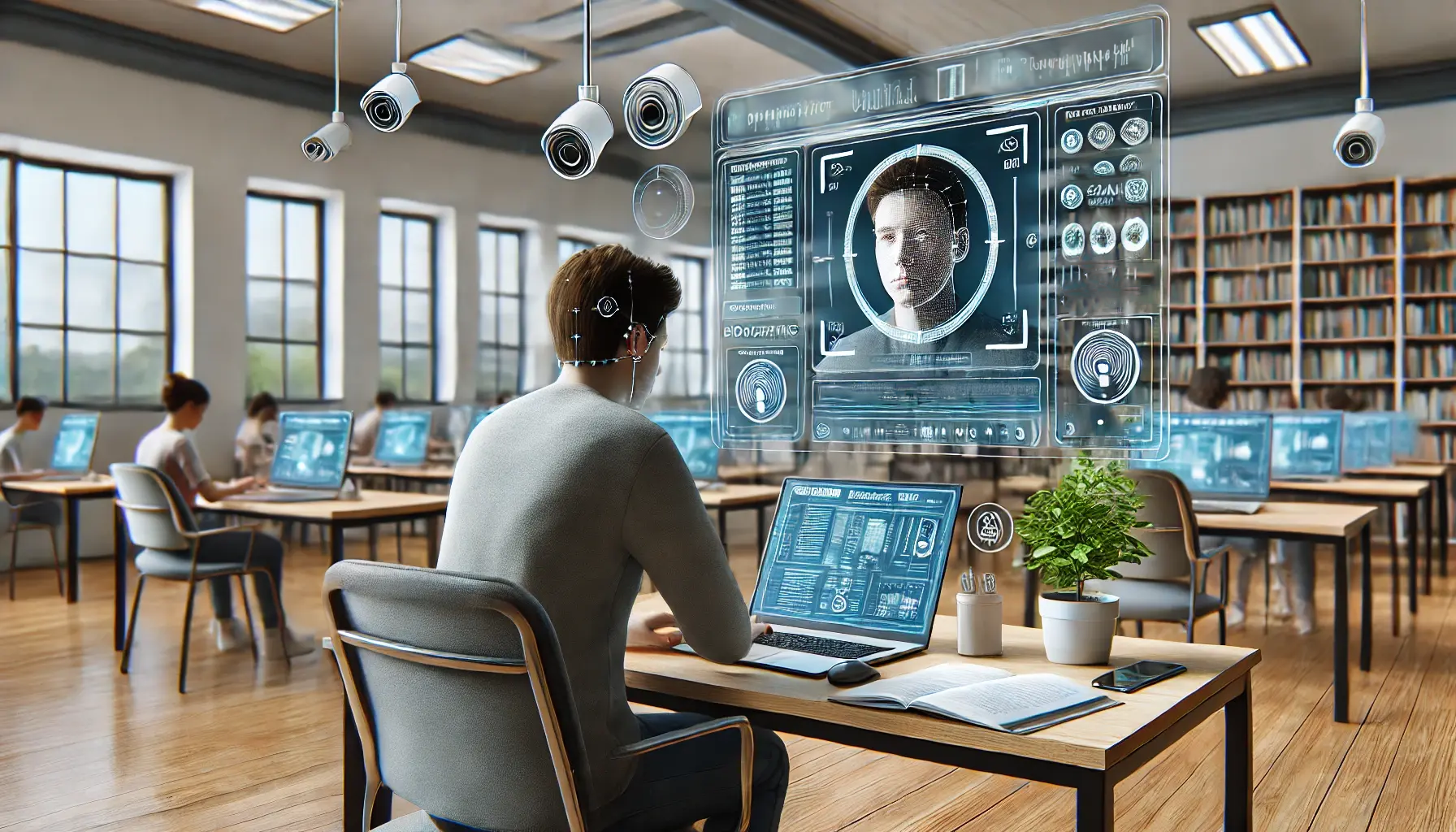Remote proctoring is a technology-enabled solution that allows for the monitoring and verification of test-takers during online assessments. The process involves the use of various tools and techniques to ensure the authenticity and integrity of the tests being taken remotely. Remote proctoring typically includes identity verification, real-time monitoring, and the recording of the test session to prevent cheating and fraud. There are different types of remote proctoring, such as live proctoring with a human proctor and automated proctoring, which uses AI and machine learning algorithms to detect any suspicious behavior.
What is Zoom Proctoring?
Zoom has become a popular tool for remote monitoring due to its widespread use and familiarity among both educators and students. Key features that facilitate monitoring include video, breakout rooms, and recording capabilities. These features allow invigilators to monitor candidates in real-time and review recorded sessions if needed.
What are the advantages of Zoom proctoring?
Convenience and Accessibility: Zoom proctoring offers flexibility for both candidate and organizations. Candidates can take exams from any location, which is particularly beneficial for those who are geographically dispersed or have mobility issues. Institutions can schedule exams more flexibly and accommodate various time zones.
Cost Efficiency: By using Zoom for remote proctoring, educational institutions can reduce costs associated with physical infrastructure, such as exam halls and invigilator travel expenses. This cost efficiency is especially valuable in the current climate of budget constraints faced by many educational institutions.
Real-Time Monitoring: Zoom allows for immediate supervision and interaction, enabling invigilators to address any issues or suspicious behaviors in real-time. This can help deter academic dishonesty and ensure that students adhere to exam protocols throughout the assessment period.
What are the common concerns with Zoom proctoring?
Privacy Issues: There are significant concerns regarding data security and personal privacy with Zoom proctoring. Candidates are required to keep their webcams on, exposing their personal spaces to invigilators and sometimes to peers. The storage and handling of recorded data pose additional privacy risks if not managed correctly.
Technical Challenges: Technical difficulties such as unstable internet connections and hardware malfunctions can disrupt the exam process. Candidates with limited access to high-speed internet or modern devices may find it challenging to participate effectively, leading to potential inequities in the examination process.
Academic Integrity: While Zoom provides tools for monitoring, it is not foolproof against cheating. Candidates may still find ways to circumvent supervision, such as using unauthorized materials off-camera. Institutions need to implement additional measures to mitigate the risk of academic dishonesty effectively.

Why should you use professional proctoring tools like Talview to maintain exam integrity?
Talview's top-rated remote proctoring solutions leverage advanced algorithms to identify any irregularities in test-taker behavior during an examination. By integrating a combination of AI proctoring and Live proctoring techniques, Talview's platform significantly boosts the efficacy of remote proctoring. The AI-driven tools employed by Talview are capable of automatically detecting suspicious activities, such as atypical eye movements, the presence of multiple faces within the camera's frame, or attempts by the test-taker to navigate away from the exam screen. This state-of-the-art technology ensures a high level of integrity and security for exams conducted remotely. Talview gives utmost importance to privacy and data security.
Policy and Enforcement: Talview emphasizes the importance of clear communication regarding academic and exam policies. Establishing clear rules and consequences for academic dishonesty and communicating them effectively to students can serve as a deterrent against cheating. Consistent enforcement of these policies is essential to maintain the credibility of remote assessments.
Privacy and Security:
Talview incorporates privacy-centric features and practices to reassure users of their data security:
- Rigorous Data Encryption: Utilizing cutting-edge encryption algorithms to safeguard data transmission and storage.
- Compliance with Privacy Regulations: Adheres strictly to global privacy regulations such as GDPR and FERPA.
- Transparent Data Policies: Maintaining clear policies regarding data usage, retention, and sharing, empowering users with insights into their information handling.
Conclusion
As remote proctoring advances, balancing technology's benefits with privacy and security is crucial. Transparent communication, strong security, and improving proctoring methods are key for a secure and fair remote exam environment. Technological advancements promise more efficient assessments. Integrating remote proctoring effectively in education hinges on embracing innovation while tackling challenges to uphold academic integrity and fairness.







Leave a Reply